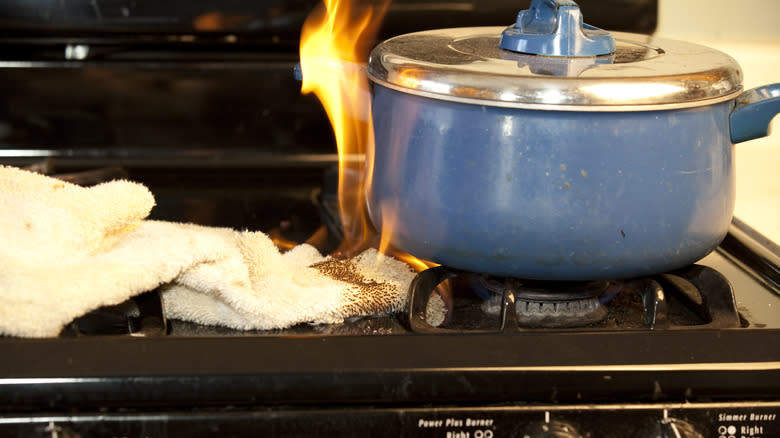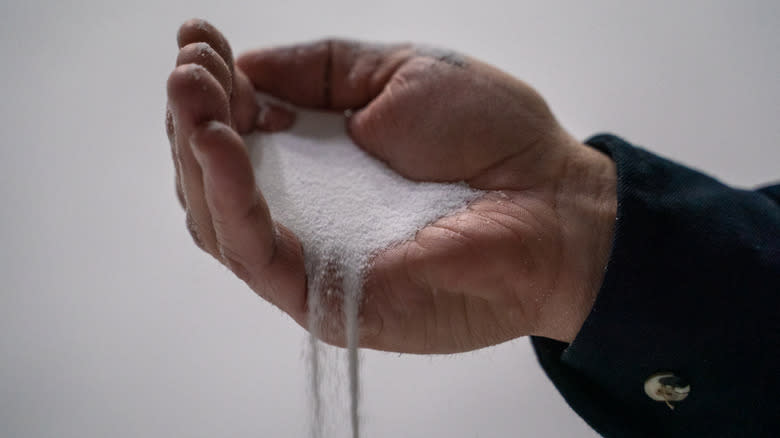Why Salt Puts Out Grease Fires Better Than Water

No one wants a kitchen fire, but when you realize you forgot to take the turkey out of the oven or walked away from the frying pan for what only seemed like a brief second, sometimes they happen. While the first instinct may be to dump water on a fire, that is the last thing you want to do. A chemical extinguisher works best for fires involving grease or cooking oils, but a little-known fact about salt is how effective it is against grease fires.
Salt doesn't burn in a fire, which means it can be poured directly onto the flames of a small kitchen fire and used to smother it by depriving it of oxygen. If a frying pan catches on fire, pouring salt over it can get it under control fast. But while salt can be helpful in putting out a manageably sized fire, it's not a substitute for calling for help, especially for a larger kitchen fire. It's important to use common sense in these types of situations -- if a fire is big enough to concern you at all, the fire department is probably the most effective and practical solution.
Read more: 12 Little-Known Facts About Salt
Water Can Make A Greasy Fire Splatter

A fire that starts in the kitchen while cooking and involves oil or fats is known as a Class K fire. Pouring water on this kind of fire will only make the fire worse for the simple reason that oil and water don't mix -- they repel each other. Water tends to sink below oil and grease because it is heavier. But, in a Class K fire, the fat around the water is so hot that much of the water evaporates, and the result is that the water swells, pushing the oil up. The next thing you know, the hot grease splatters and the fire is growing.
Another common kitchen item, baking soda can also help extinguish small fires. When it's poured onto grease fires, it releases carbon dioxide as it heats up, which counters the oxygen the fire needs and smothers it. Table salt, on the other hand, surrounds or insulates the grease so it can't reach oxygen. Other items such as sugar and flour are flammable and will only make the fire worse.
According to the National Fire Protection Association, cooking was not only the top cause of home fires between 2015 and 2019, but responsible for 42% of home-fire-related injuries. The best thing to do in case of fire is get out of the house and call 9-1-1.
Read the original article on Mashed.

